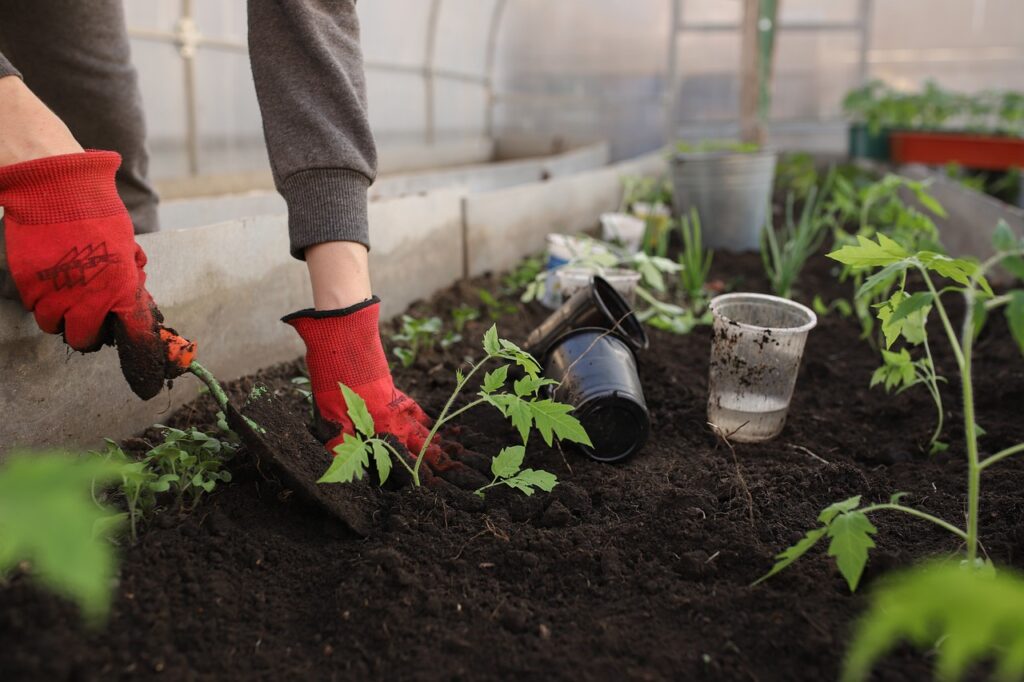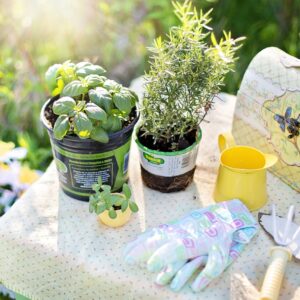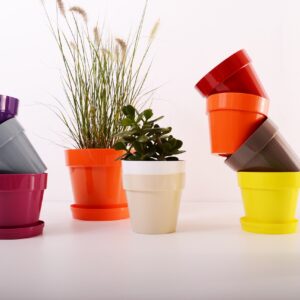
Here are some detailed tips and advice for beginners starting their home gardening journey:
- Assess Your Space: Determine the available space for your garden, whether it’s a backyard, balcony, or windowsill. Consider factors like sunlight exposure, soil quality, and access to water.
- Start Small: Begin with a small garden area or a few pots to manage and gain confidence. You can always expand later as you gain experience.
- Choose the Right Plants: Select plants suitable for your gardening conditions, such as the amount of sunlight, temperature, and soil type. Start with easy-to-grow plants like herbs, leafy greens, and certain varieties of flowers.
- Prepare the Soil: Ensure your soil is well-draining and fertile. Remove any weeds or rocks and amend the soil with compost or organic matter to improve its structure and nutrient content.
- Watering: Understand the watering needs of your plants. Most plants require consistent moisture but not excessive watering. Learn to strike a balance and avoid waterlogging or allowing the soil to dry out completely.
- Watering Techniques: Instead of shallow and frequent watering, encourage deep root growth by watering your plants deeply and less frequently. This promotes stronger, more drought-tolerant plants. Water in the morning or evening to minimize evaporation.
- Sunlight Requirements: Different plants have varying sunlight requirements. Observe the amount of sunlight your garden receives and select plants accordingly. Full-sun plants require at least 6-8 hours of direct sunlight per day, while shade-loving plants thrive in less sunlight.
- Planting Techniques: Follow proper planting techniques, including digging holes deep enough for the root ball, gently loosening the roots, and watering the plant after planting. Ensure you provide adequate spacing between plants for optimal growth.
- Fertilization: Feed your plants with appropriate fertilizers to provide essential nutrients. Organic options like compost, well-rotted manure, and organic fertilizers are ideal for sustainable gardening.
- Pest and Disease Management: Learn about common pests and diseases that affect your chosen plants. Monitor your garden regularly for signs of infestation or disease, and take preventive measures such as using organic pest control methods or companion planting.
- Mulching: Apply a layer of organic mulch around your plants to retain moisture, suppress weed growth, and regulate soil temperature. Organic mulch, such as straw, wood chips, or compost, also enriches the soil as it breaks down.
- Regular Maintenance: Regularly inspect your plants for any issues, such as pruning dead or damaged foliage, removing weeds, and providing support to plants that require it. This helps maintain plant health and encourages growth.
- Learn from Experience: Gardening is a continuous learning process. Keep a journal to record your observations, successes, and challenges. This will help you improve your gardening skills and make better decisions in the future.
- Seek Knowledge and Resources: Take advantage of gardening books, online forums, local gardening clubs, and expert advice to expand your knowledge and get specific guidance for your region.
- Patience and Perseverance: Gardening requires patience, as plants take time to grow and mature. Embrace the learning journey and enjoy the process, even if you encounter setbacks along the way.
- Timing and Seasonality: Understand the planting seasons for different plants in your region. Some plants thrive better when planted in specific seasons or weather conditions. Consult local gardening resources or experienced gardeners to determine the ideal timing for planting specific crops.
- Companion Planting: Explore the concept of companion planting, where certain plants benefit each other when grown together. For example, planting marigolds with vegetables can repel pests, or growing beans near corn can enhance soil fertility.
- Pest Prevention: Implement preventive measures to minimize pest issues. This includes regularly inspecting plants for signs of pests, practicing good garden hygiene, and encouraging beneficial insects and birds to visit your garden.
- Harvesting: Learn the proper harvesting techniques for different crops. Harvest vegetables when they are mature but before they become overripe. For flowers, pick them when they are fully bloomed but before they start to wilt.
- Continuous Learning: Keep expanding your gardening knowledge through books, online resources, and attending gardening workshops or classes. Stay curious, experiment with new techniques, and be open to learning from your experiences and fellow gardeners.
- Embrace Mistakes: Don’t be discouraged by failures or setbacks. Gardening is a learning process, and mistakes are an opportunity to grow and improve. Embrace the learning curve and use your experiences to become a better gardener.
- Share and Connect: Join gardening communities or forums, both online and offline, to connect with fellow gardeners. Share your experiences, seek advice, and learn from others’ insights. Gardening is often more enjoyable when you can connect with like-minded individuals.
- Sustainable Practices: Embrace eco-friendly and sustainable gardening practices. Use organic fertilizers and pest control methods, conserve water through techniques like mulching and drip irrigation, and compost kitchen scraps and garden waste.
- Enjoy the Fruits of Your Labor: Take the time to appreciate and enjoy the harvest from your garden. Whether it’s cooking with fresh herbs and vegetables, displaying beautiful flowers, or sharing the bounty with others, savor the rewards of your gardening efforts.
Gardening is a rewarding experience, and every gardener’s journey is unique. Embrace the joy of nurturing plants, experiment with different techniques, and adapt to the needs of your garden. Gardening is a journey of exploration and discovery. Each garden is unique, and what works for one gardener may not work for another. Embrace the opportunity to learn from your garden, adapt your techniques, and find joy in nurturing your plants. Happy Gardening.




